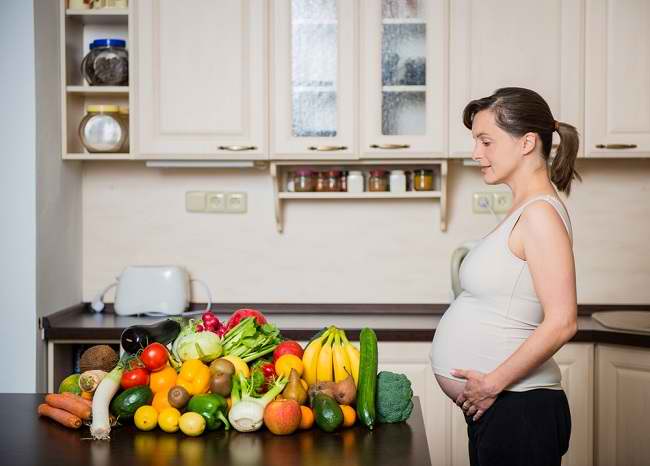One of the nutritional problems experienced by pregnant women is chronic energy deficiency (CED). Chronic energy deficiency is a condition in which women of childbearing age undergo a lack of energy and protein intake and take place continuously resulting in health problems. Direct factors and indirect factors cause chronic energy deficiency. The direct factor is the intake of food sources of energy and protein and infectious diseases. Indirect factors include age, parity, level of education, knowledge, occupation, family income, food expenditure, food availability. When pregnant women experience chronic energy deficiency events, it will cause greater danger
Social support encourages mothers to get balanced nutrition during pregnancy. If the mother consumes nutritious food, it will lead to a healthy pregnancy so that it can give birth to a safe and healthy baby. Social support during pregnancy can reduce biological sensitivity to psychological stress which can protect the fetus from the harmful effects of stress. The social support received by pregnant women can come from family, friends, and other people. The source of support for a mother can be obtained from the family, especially from her husband.
Upper Arm Circumference (LILA) has been used as a proxy indicator of CED risk for pregnant women in Indonesia because there is no data on pre-pregnancy weight for most pregnant women. Maternal upper arm circumference
The low nutritional status of pregnant women is also one of the reasons for the high low birth weight (LBW) babies. When pregnant women experience a lack of energy and protein, they usually lack the intake of other nutrients, including vitamins and minerals, so that the mother is at risk of experiencing deficiencies in various micronutrients including iron and folic acid.
The study used a quantitative design that used a descriptive correlational method with a cross-sectional approach. This study aims to analyze the relationship between demographic characteristics, knowledge, and social support with the incidence of chronic energy deficiency in pregnant women. The population in this study were all pregnant women who visited the KIA Poli Puskesmas Tanah Kali Kedinding Surabaya.
The average number of pregnant women who visited the KIA Poli Puskesmas Tanah Kali Kedinding Surabaya in January-March 2019 was 346 pregnant women. Sample selection using purposive sampling technique obtained as many as 186 respondents. Collecting data when pregnant women make a pregnancy check-up visit at the KIA Poly, namely during ANC services every Monday, Tuesday and Wednesday. Pregnant women who are waiting for an incoming call from the MCH clinic or after from the MCH clinic. Data analysis used statistical test Chi-Square, it was declared significant if p <0.05.
Mothers who have an age 35 years, the number of births ≤ three times, and a pregnancy interval of ≥ 2 years tend to experience CED. Mothers need to know the right time for pregnancy and birth and the importance of maintaining nutritional status during pregnancy. Higher education does not guarantee the health of pregnant women, because if it is not balanced with good sources of information about pregnancy, especially related to nutrition and KEK. Likewise, with family income, if a family with low income can manage nutritious food with simple and inexpensive ingredients, it can prevent the incidence of KEK.
Mothers with good nutritional knowledge are likely to provide nutrients that meet the needs of themselves and their babies. The better the experience of pregnant women, the better the efforts to maintain the health of their pregnancy. Knowledge of nutrition and maintaining pregnancy are closely related. Background influences attitudes and actions in maintaining daily eating patterns. The better the social support a pregnant woman gets, the better the motivation for preserving her pregnancy will be.
Social support from the closest people can encourage mothers to maintain their pregnancy, including fulfilling nutritional needs, pregnancy checks, and information related to pregnancy problems so that a healthy and safe pregnancy can be obtained and avoid KEK problems.
It is essential to equip women with proper knowledge about nutrition during pregnancy. By providing information during ANC visits and follow the guidelines contained in MCH handbook. Providing counselling on nutrition during pregnancy and KEK to the broader community.
Health workers also need to involve people around pregnant women in providing support and motivation from people around it is very important so that the mother’s health in preparing for childbirth as the next generation is well preserved.
Author: Ni Ketut Alit Armini
Link:





